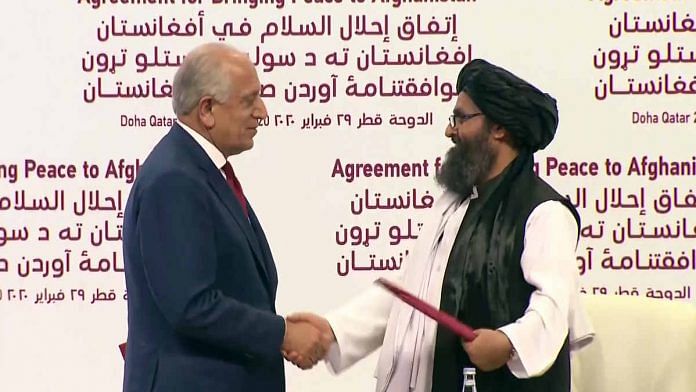The ongoing withdrawal of American troops from Afghanistan has plunged the already fragile democracy of the country into chaos. It had been predicted that without external handholding, the government in Kabul could manage to pull on for at least six months. But this possibility now seems bleak. With the increase in the number of territories under the Taliban control, many have raised concerns about women’s safety and freedom. Consider, for example, former US president George W. Bush’s statement on the precarious situation of women in Afghanistan: “I’m afraid Afghan women and girls are going to suffer unspeakable harm.”
The dark days
In the late 1990s, at its peak, the Taliban had gained international notoriety for mistreatment of women in Afghanistan. It established a regime of stringent rules against women, often referred to as the ‘gender apartheid‘. The outfit barred women from working outside of their houses, banned education for girls over the age of eight, and made it a law for women to be accompanied by a male relative every time they stepped out of their homes. Women seeking education were forced to attend underground schools, where they and their teachers ran the risk of execution, if caught. Systemic exclusion from the economic realm had a devastating impact on the household incomes of vulnerable sections of population, a great majority of them being widow-run households.
But with the presence of American military forces in the region, came the possibility of women being able to go out, get an education and find meaningful employment. It provided an avenue for being independent in a deeply patriarchal society. In the past two decades, Afghanistan has managed to bring many women back to schools and universities. Consequently, these educated women were able to find employment in diverse fields, ranging from politics to media and entertainment. They also forayed into sports, considered strictly a male bastion.
This freedom to pursue employment opportunities resulted in women making up nearly 16.1 per cent of the labour force in Afghanistan as of 2014. All these events seemed to herald better times for women. Sadly, that is now coming under threat. In a number of regions, women are increasingly wary of stepping out without a male companion, for the fear of being punished.
Sanam Sadat, an activist, speaking of the looming danger, says she’s worried about women being completely excluded from political, social and economic life all over again and facing the eventuality of losing their hard-won rights.
Also read: India confident Kabul won’t fall to Taliban, is moving on ‘multiple tracks’ on Afghanistan
International responsibility
As their lives continue to remain on tenterhooks, it falls upon us, as fellow human beings, to champion their cause and persuade our respective governments to take measurable action to help protect their rights. It is important for the international community to ensure that their needs are made one of the key objectives of any future negotiations among stakeholders in Afghanistan. And this can only happen when women are allowed a place at the negotiating table.
Recent studies on women’s impact in the peace processes indicate that they “usually tend to focus less on the spoils of the war and more on reconciliation, economic development, education and transitional justice – all critical elements of a sustained peace.” Their involvement also helps in ensuring effective implementation of peace accords in the long run. It is then not only important for people with progressive outlook within Afghanistan but also for international players to back Afghan women in their quest for a better future.
N Rithika is a student at Ramjas College, University of Delhi. Views are personal.



